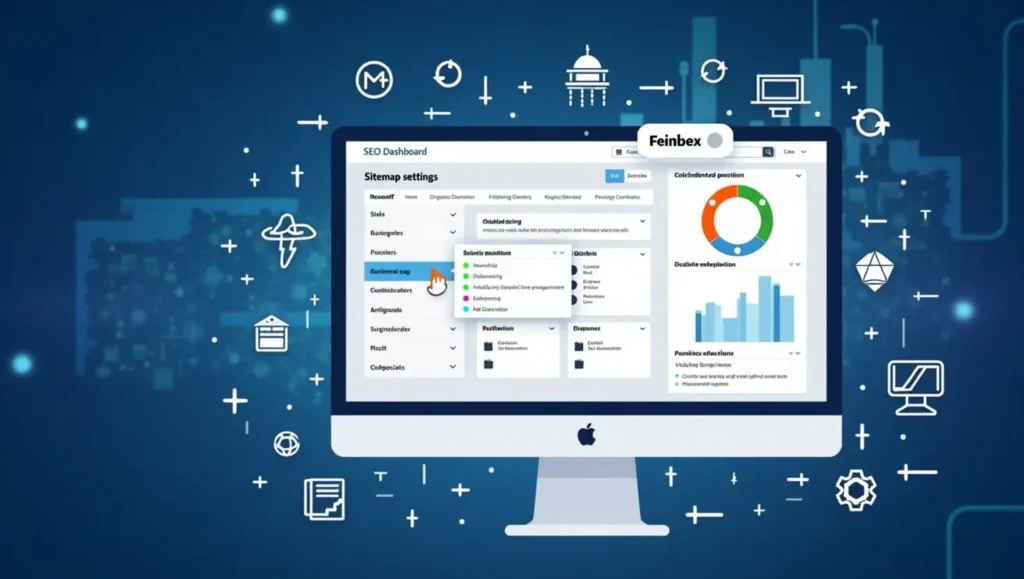In the ever-evolving world of SEO, data is king. Understanding your competitors, analyzing search trends, and uncovering hidden opportunities are crucial for staying ahead. But how do you efficiently gather this data? Web Scraping is the answer—a powerful technique that allows you to extract valuable insights from websites at scale.
When combined with Python, Web Scraping becomes a game-changer for SEO professionals. Python’s simplicity, versatility, and robust libraries make it the perfect tool for automating data collection and analysis. Whether you’re tracking keyword rankings, analyzing backlinks, or monitoring competitor strategies, Python-powered Web Scraping can streamline the process, saving time while delivering precise insights.
In this blog, we’ll explore how web scraping with Python can supercharge your SEO efforts, providing actionable tips, real-life examples, and expert insights. Learn how to extract meaningful SEO data, optimize your website’s performance, and gain a competitive edge.
This blog is part of our Technical SEO with Python series, where we dive into advanced techniques to enhance SEO strategies through automation and data-driven decision-making.
Table of Contents
ToggleWhy Web Scraping Matters for SEO
The technique of obtaining information from websites is known as web scraping. For SEO, it’s a goldmine of insights:
- Competitor Analysis: Scrape competitor websites to analyze their content, backlinks, and keyword strategies.
- SERP Analysis: Extract data from search engine results pages (SERPs) to understand ranking factors and search intent.
- Content Gap Analysis: Identify missing topics or keywords by comparing your content with competitors’.
- Trend Monitoring: Track changes in website structures, pricing, or product offerings across your industry.
By automating these tasks with Python, you can save time, reduce manual effort, and focus on strategic decision-making.
Getting Started with Web Scraping in Python
BeautifulSoup, Scrapy, and Selenium are just a few of the web scraping utilities available in Python. Each has its strengths, depending on the complexity of the task.
Example: Scraping Competitor Titles and Meta Descriptions
Let’s say you want to analyze the titles and meta descriptions of a competitor’s blog posts. Here’s how to use BeautifulSoup to do it::
python
Copy
import requests
from bs4 import BeautifulSoup
def scrape_competitor_metadata(url):
headers = {“User-Agent”: “Mozilla/5.0”}
response = requests.get(url, headers=headers)
soup = BeautifulSoup(response.text, “html.parser”)
titles = [title.text for title in soup.find_all(‘h1’)]
meta_descriptions = [meta.get(‘content’) for meta in soup.find_all(‘meta’, attrs={‘name’: ‘description’})]
return titles, meta_descriptions
competitor_url = “https://example.com/blog”
titles, meta_descriptions = scrape_competitor_metadata(competitor_url)
print(“Titles:”, titles)
print(“Meta Descriptions:”, meta_descriptions)
Key Benefit: This script helps you understand how competitors optimize their content for search engines, giving you ideas for improving your own titles and meta descriptions.
Advanced Web Scraping Techniques
For more complex tasks, such as scraping dynamic websites or handling pagination, you can use Selenium.
Example: Scraping Dynamic Content with Selenium
Some websites load content dynamically using JavaScript. Here’s how you can use Selenium to scrape such content:
python
Copy
from selenium import webdriver
from selenium.webdriver.common.by import By
def scrape_dynamic_content(url):
driver = webdriver.Chrome() # Ensure you have the Chrome driver installed
driver.get(url)
# Wait for the content to load
driver.implicitly_wait(10)
# Extract headlines
headlines = [element.text for element in driver.find_elements(By.TAG_NAME, ‘h2’)]
driver.quit()
return headlines
dynamic_url = “https://example.com/dynamic-content”
headlines = scrape_dynamic_content(dynamic_url)
print(“Headlines:”, headlines)
Key Benefit: This script allows you to scrape content from websites that rely heavily on JavaScript, ensuring you don’t miss out on valuable data.
Ethical Considerations and Best Practices
While web scraping is a powerful tool, it’s essential to use it ethically and responsibly. Here are some best practices:
- Respect Robots.txt: Always check a website’s robots.txt file to see if scraping is allowed.
- Limit Request Frequency: Avoid overwhelming servers by adding delays between requests.
- Identify Yourself: Use a custom User-Agent string to identify your scraper.
Comply with Legal Guidelines: Ensure your scraping activities comply with local laws and website terms of service.
Real-Life Applications of Web Scraping for SEO
Case Study: Analyzing SERP Features
A leading e-commerce company used Python to scrape SERP data for their target keywords. By analyzing featured snippets, “People Also Ask” questions, and related searches, they identified content gaps and optimized their pages accordingly. This led to a 30% increase in organic traffic within three months.
Expert Insight
According to John Mueller, Senior Webmaster Trends Analyst at Google, “Understanding what users are searching for and how search engines interpret those queries is crucial for SEO success. Tools like web scraping can provide valuable insights into these areas.”
Conclusion
Web scraping with Python is a powerful technique for extracting actionable insights that can transform your SEO strategy. From competitor analysis to SERP monitoring, the possibilities are endless. By automating data collection and analysis, you can focus on what truly matters—creating content that resonates with your audience and drives results.
As part of our Technical SEO with Python series, this blog highlights the importance of leveraging technology to stay ahead in the competitive world of SEO. Whether you’re a beginner or an experienced professional, web scraping is a skill worth mastering.
Next Steps: Start experimenting with the scripts provided in this blog. Explore Python libraries like BeautifulSoup and Selenium, and see how you can apply web scraping to your own SEO projects.



